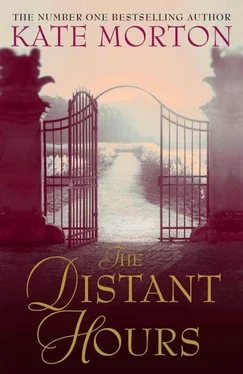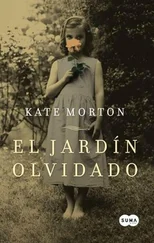I spent the rest of the evening staring at the letter, scribbling indecipherable patterns in my notebook, and dialling Herbert’s number; listening to the phantom voices trapped inside that empty phone line. At eleven o’clock I accepted finally that it was too late to continue stalking Herbert’s empty house; that, for now at any rate, I was alone with my problem.
As I headed for the castle next morning, exhausted and bleary-eyed, I felt as if I’d spent the night tumbling through the wash. I had the letter concealed within the inside pocket of my jacket and I kept slipping my hand in to check it was still there; I can’t explain why exactly, but as I left my room I’d been compelled to retrieve it, to tuck it away safely and carry it on my person. To leave the letter behind on the desk was unthinkable, somehow. It wasn’t a rational decision; it wasn’t through fear that someone else might happen upon it during the day. It was a strange and burning conviction that the letter belonged with me, that it had presented itself to me, that we were attached in some way now and I had been entrusted with unravelling its secrets.
When I arrived Percy Blythe was waiting for me, pretending to pull weeds from a plant pot by the entrance stairs. I saw her before she noticed me, which is how I know she was pretending. Right up until the moment that some creeping sixth sense made her aware of my presence, she’d been standing upright, leaning against the stone of the stairs, arms wrapped across her middle, attention fixed on something in the distance. She’d been so still, so pale, that she’d looked like a statue. Though not the sort of statue most people would choose to stand in front of their house.
‘Any sign of Bruno?’ I called, wondering at my ability to sound normal.
She made a small performance of surprise at my arrival and rubbed her fingers together so that tiny pieces of dirt sifted to the ground. ‘I don’t hold out high hopes. Not with the cold come in as it has.’ She waited for me to reach her, then extending her arm, invited me to follow: ‘Come.’
It was no warmer inside the castle than out. Indeed, the stones seemed somehow to trap the cold air, making the whole place greyer, darker, more bleak than before.
I expected that we would follow the usual corridor towards the yellow parlour but Percy led me instead to a small hidden doorway, tucked behind an alcove within the entrance hall.
‘The tower,’ she said.
‘Oh.’
‘For your article.’
I nodded, and then, because she’d started up the narrow, winding staircase, I began to follow.
With each step, my sense of unease grew. It was true what she had said – seeing the tower was important for my article – and yet there was something indefinably strange in Percy Blythe suggesting that she should show it to me. She’d been so reticent thus far, so reluctant that I should speak to her sisters or see her father’s notebooks. To find her waiting for me this morning, outside in the cold, for her to propose showing me the tower room without my having to ask first – well, it was unexpected, and I am not made comfortable by unexpected things.
I told myself I was reading too much into it: Percy Blythe had selected me for the task of writing about her father, and she was nothing if not proud of her castle. Perhaps it was as simple as that. Or perhaps she’d decided that the sooner I saw what I needed to, the sooner I’d be on my way and they would be left once more to their own devices. But no matter how much sense I made, the niggling had started. Was there any way, I wondered, that she knew what I had found?
We’d reached a small platform of uneven stone; a narrow archer’s window had been cut into the dusky wall and I was able to glimpse through it a thick sweep of Cardarker Wood; so glorious when seen in full, yet ominous somehow in section.
Percy Blythe pushed open the narrow round-topped door. ‘The tower room.’
Once again, she stepped aside so that I might go first. I went gingerly, stopping in the centre of the small, circular room on a faded rug of sooty shades. The first thing I noticed was that the fire had been freshly set, in preparedness for our visit, I supposed.
‘There,’ she said, closing the door behind us. ‘Now we are alone.’
Which set my heart to racing, though why precisely I could not say. My fear made little sense. She was an old lady, a frail old lady who’d just employed what scant energy she had in climbing the stairs. If the two of us were to engage in a physical tussle, I was pretty sure I’d hold my own. And yet. There was something in the way her eyes still shone, a spirit that was stronger than her body. And all I could think was that it was an awfully long drop from here to the ground and that a lot of people already had died plummeting from that window right there…
Happily, Percy Blythe was unable to read my mind and see written there the sorts of horrors that belong only in melodramatic fiction. She rolled a wrist slightly and said, ‘This is it. This is where he worked.’
And hearing her say it, I was able finally to creep out from beneath my own clouded thoughts and appreciate that I was standing in the middle of Raymond Blythe’s tower. These bookshelves, built to mould against the curving walls, were where he’d kept his favourites, the fireplace had been that by which he’d sat, day and evening, working on his books. My fingers ran along the very desk at which he’d written the Mud Man .
The letter whispered against my skin. If indeed he wrote the book himself.
‘There’s a room,’ said Percy Blythe, as she struck a match and set the fire burning, ‘behind the tiny door in the entrance hall. Four storeys below, but right beneath the tower. We used to sit there sometimes, Saffy and I. When we were young. When Daddy was working.’ It was a rare moment of expansiveness, and I couldn’t help but watch her as she spoke. She was tiny, thin and wan, and yet there was something deep inside Percy Blythe, a strength – of character perhaps? – that drew one like a moth. As if sensing my interest, she withdrew her light, that twist of a smile breezed across her face, and she straightened. Nodded at me as she tossed the spent matchstick into the flames. ‘Please yourself,’ was all she said. ‘Have a look around.’
‘Thank you.’
‘Don’t go too near the window, though. It’s a long way to fall.’
Giving her what little smile I could manage, I began to take in the details of the room. The shelves were quite empty now; most of their former contents, I supposed, were lining the walls of the muniment room; but there were still framed pictures on the wall. One in particular caught my eye. It was an image with which I was familiar: Goya’s Sleep of Reason . I paused before it, taking in the foreground human figure, slumped – in despair it seemed – over his writing desk, while a host of bat-like monsters flurried above, arising from and feeding on, his sleeping mind.
‘That was my father’s,’ said Percy. Her voice made me jump, but I didn’t turn, and when I looked again at the picture my perception had changed so that I saw my own shadowy reflection, and hers behind me, in the glass. ‘It used to frighten us terribly.’
‘I can understand why.’
‘Daddy said to fear was foolish. That we’d do better to draw a lesson.’
‘Which lesson was that?’ I turned now to face her.
She touched the chair by the window.
‘Oh no, I – ’ another weak smile – ‘I’m happy to stand.’
Percy blinked slowly and I thought for a moment that she might insist. She didn’t though, saying only, ‘The lesson, Miss Burchill, was that when reason sleeps, the monsters of repression will emerge.’
My hands were clammy and a spreading heat was climbing up my arms. But surely she had not read my mind. She couldn’t possibly know the monstrous things I’d been imagining since I found the letter, my morbid fantasies of being pushed from the window.
Читать дальше












